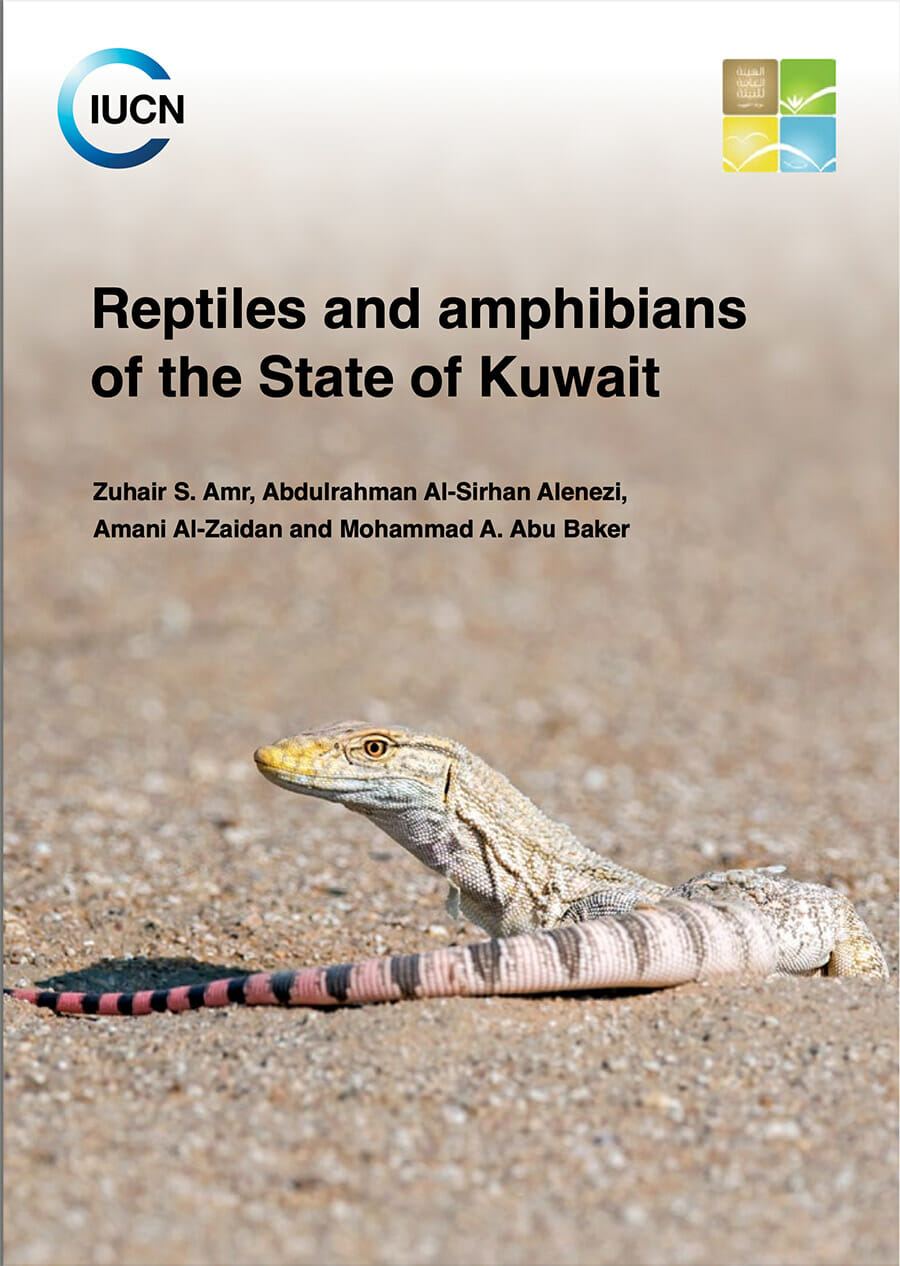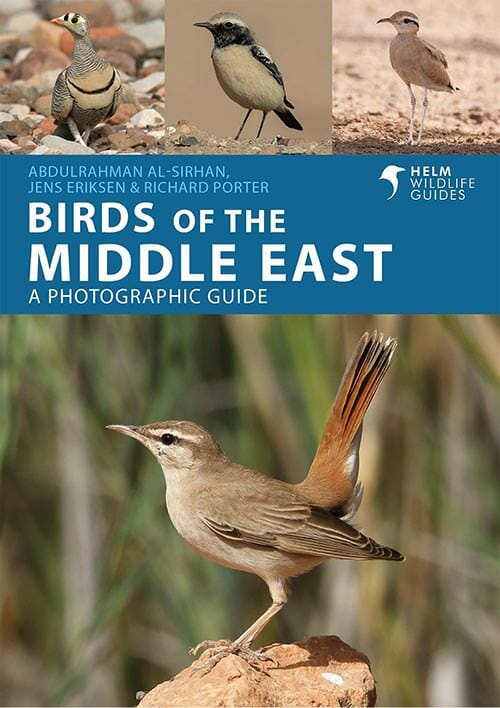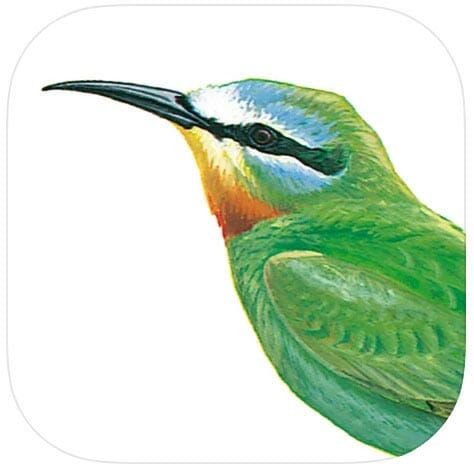Kuwait is located at the head of the Arabian Gulf and offers birders a unique opportunity to visit the south-eastern extremity of the Western Palearctic. It is one of the 64 countries on the flight path of the most important and primary migratory route, namely the Asia/East Africa Flyway.
Kuwait has quickly become known as the only reliable place to see a number of regional specialties and vagrants within a Western Palearctic context.
KORC is responsible for ensuring the Annotated List of Birds is unquestionably accurate and for this the Constitution guides KORC on how to achieve and maintain an acceptable standard that is internationally recognised.
- Committee
The Kuwait Ornithological Rarities Committee (KORC) members work in an honorary and voluntary capacity and were either involved since its inception or were voted onto the committee by existing members.
New members are nominated and considered based on their expertise in bird identification in Kuwait and other relevant regions as well as their willingness to give up their time, to play a role in contributing to the sanctity of Kuwait’s bird records.
The current Committee is:
Neil Tovey (NT)
–
Chairman and voting member
Abdulrahman Al-Sirhan (SIR) – Secretary and voting member
Mike Pope (MP) – Voting member
Markus Craig (MC) – Voting member
Humoud Al-Shayji (HS) – Voting member
Omar Al Shaheen (OS)
– Voting member
Oscar Campbell (OC) – External Adjudicator and voting member –
Abu Dhabi
Peter Kennerley (PK) – External Adjudicator and voting member –
England
2. Objectives and Responsibilities
2.1 Objectives
- Ensure the Kuwait Annotated Check List is updated quarterly; considering accepted Rare Bird Reports by KORC and taxonomic changes highlighted in the OSME ORL.
- Ensure the integrity of the Annotated Check List as a reliable and consistent reference source for both ornithologists and birders alike.
2.2 Responsibilities
- Provide objective, professional and transparent adjudication of submitted Rare Bird Repots (RBR’s)
- Maintain the Annotated Checklist of Birds of Kuwait, in line with OSME ORL taxonomy and ensure that it is the most current, reliable and definitive checklist for the birds of Kuwait.
- Maintain an online presence for KORC and for RBR’s.
- For English –https://www.birdsofkuwait.com/kuwait_bird_list/
- Compile and Publish the Annual Rare Bird Report Online – https://birdsofkuwait.com/korc-page/
3. OSME and Definitions
3.1 OSME (Ornithological Society of the Middle East, the Caucus and Central Asia)
- The Kuwait Annotated Checklist of Birds follows the OSME Region List of bird taxa, its nomenclature and its sequence.
- The Kuwait Annotated Checklist is validated, endorsed and approved by KORC.
3.2 Local Status
The seasonal status of each species is judged to be one of the following categories:
Abundant: Occurs annually in very large numbers.
Very common: Occurs annually in
large numbers.
Common: Occurs annually in moderate
numbers.
Uncommon: Occurs annually in small
numbers.
Scarce: Occurs annually in very
small numbers.
Rare: Does not occur annually but
has occurred more than 10 times in total.
Vagrant: Has occurred less than 10
times in total.
Irregular: Occurs, not necessarily
every year, in very variable numbers
Migrant: Passage through Kuwait in
spring and autumn.
Winter visitor: Occurs in Kuwait
during winter after migration has ended and stays in Kuwait for some time.
Summer visitor: Occurs in Kuwait
during summer after migration has ended and stays in Kuwait for some time.
Resident/Local: Occurs in Kuwait all
year round.
Breeds: Breeds every year.
Has bred: A bird that has bred in
the past but there is no sign of breeding in recent years
Extinct: No longer exists.
3.3 Categories
The Kuwait Annotated List comprises only those species defined in Category A and C; although Cat E species are also recorded should their status change in the future e.g. Rüppell’s Weaver
Category A: Species that have been recorded in an apparently
natural state at least once.
Category C: Species that,
although introduced (escaped) now derive from the resulting self-sustaining
population.
Category D: Species that
would otherwise appear in Category A, except there is reasonable doubt that
they have occurred naturally.
Category E: Species that have
been recorded as introductions, human-assisted transportees or escapees from
captivity and whose breeding populations (if any) are thought not to be self-sustaining.
4. KORC Guidelines for RBR Submission
Fill in the bilingual KORC Form online;
For English; https://birdsofkuwait.com/korc-form/
For Arabic; https://birdsofkuwait.com/korc-form-arabic/
If possible, provide supporting photographs that clearly show all the identification features of the species observed and then complete the required information on the online form.
If you face difficulties in filling the KORC Form or unable to submit the photographs send them by e-mail to KORC members; neiltovey@gmail.com, alsirhan@alsirhan.com and mikeinq8@gmail.com
5. Assessment of Rarity Forms by KORC Committee
- KORC meets Quarterly to assess and review submitted Rare Bird Reports (RBR), Highest Daily Counts (HDC) and any Breeding Records.
- Each RBR record is reviewed on its own.
- Majority decisions for Acceptance or Not Proven are considered opinions as to whether each submitted record has enough evidence to reliably support and prove the identification.
- KORC decisions for ‘Acceptance or Not Proven’ do not represent an assessment of the observer.
- ‘Not Proven’ means that the evidence presented on the RBR is not sufficient to establish or confirm identification beyond reasonable doubt. In addition to information provided, observer experience of the species and/or potential confusion of similar species could sometimes influence a decision.
- If KORC cannot reach a consensus, then that RBR is shared with the experienced international adjudicators for their opinion. Based on their vote together with KORC, an ‘Accept or Not Proven’ decision is reached.
- KORC Committee may ask for additional information or images, to assist with reaching a conclusive decision on a submitted RBR.
- .
- An extremely vagrant species that arrives in good numbers in one year and get scattered into many sites in Kuwait is considered one record and thus the first finder/finders, is/are required to submit a KORC Form or somebody else on behalf of the observer.
- The same rule is applied when the one bird get augmented by another at the same site.
6. Communicating KORC Decisions
- KORC will send the assessed KORC RBR’s back to the Observers whether these are ‘Accepted or Not Proven’ to ensure the assessment and review process is transparent, as well as to provide feedback to the observers
- Accepted records will be published on KORC Web Page Quarterly https://birdsofkuwait.com/korc-page/
- The Annotated List will be updated after each Quarterly KORC meeting, to reflect the current status of Kuwait’s Birds.







Hi Jenny, Yes, I do remember when I guided you. I will be doing bird watching tour in Saudi Arabia…
Hi, when I stayed in Kuwait about 7 years ago, you took my husband and I into the desert for…
Beautiful collection
Thanks, Paul, Abdulrahman